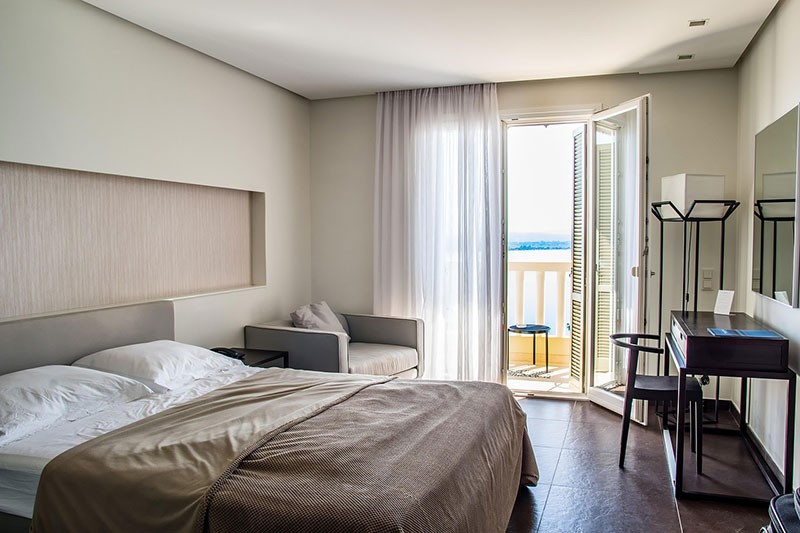
Selecting the perfect hotel can make or break your travel experience. Whether you're planning a romantic getaway, a family vacation, or a business trip, the right accommodation sets the tone for your entire journey. With countless options available online, from luxury resorts to budget-friendly hostels, making the right choice requires careful consideration and research.
Before making any booking decisions, thorough research is essential. Start by reading genuine guest reviews on multiple platforms to get a balanced perspective. Pay attention to recent reviews, as hotel standards can change over time. Look for patterns in feedback – if multiple guests mention the same issues, take them seriously.
When researching online, be cautious about booking platforms. Some travelers have concerns about newer booking sites, so it's worth checking their credibility. For instance, if you're considering lesser-known platforms, research their legitimacy thoroughly. Sites like Vio.com have been subject to scrutiny, so always verify the authenticity of booking platforms before entering payment information.
The hotel's location should align with your travel priorities. Consider proximity to attractions you plan to visit, public transportation options, and the neighborhood's safety. A hotel in the city center might cost more but could save you money on transportation. Conversely, a suburban location might offer better value and quieter surroundings.
Research the surrounding area using maps and street view features. Check if there are restaurants, shops, and amenities nearby. Consider factors like noise levels – a hotel near a busy street or nightlife district might not be ideal if you're seeking rest and relaxation.
Establish a realistic budget that includes not just the room rate but also additional fees. Many hotels charge extra for amenities like WiFi, parking, resort fees, or breakfast. Factor in local taxes and service charges that might not be included in the initial price quote.
Consider the total cost of your stay, including potential savings from hotel amenities. A hotel with a complimentary breakfast might cost more upfront but could save you money on meals. Similarly, hotels with fitness centers, pools, or business centers might eliminate the need for external services.
Identify which amenities are essential for your trip versus nice-to-have features. Business travelers might prioritize reliable WiFi and a business center, while families might focus on pools, kids' clubs, and connecting rooms. Consider practical needs like laundry facilities, room service, or 24-hour reception.
Don't be swayed by impressive amenity lists if they don't align with your needs. A hotel with a spa and golf course might sound luxurious, but if you won't use these facilities, you're paying for services you won't enjoy.
Carefully review room descriptions and photos. Pay attention to bed configurations, room size, and bathroom facilities. If you're traveling with family or friends, consider whether you need connecting rooms or suites. Check if the hotel offers rooms with specific features like balconies, city views, or kitchenettes if these are important to you.
Be aware that hotel photos can be misleading. Look for recently taken photos and read reviews that mention room conditions. Some hotels undergo renovations, so newer rooms might be significantly better than older ones.
Research the hotel's security measures and the safety of the surrounding area. Check if the hotel has 24-hour security, secure entry systems, and in-room safes. Read recent reviews for any mentions of security concerns or incidents.
Consider the hotel's location in terms of personal safety, especially if you plan to walk around the neighborhood at night. Check local crime statistics and travel advisories for the area.
Timing your booking can significantly impact price. Generally, booking 2-3 months in advance offers the best balance of availability and pricing. However, last-minute deals can sometimes offer significant savings if you're flexible with your dates.
Compare prices across multiple platforms, but always verify the final booking details. Some third-party sites might offer lower prices but with restrictions on changes or cancellations. Consider booking directly with the hotel, as they often match prices and provide better customer service.
Learn to interpret hotel reviews effectively. Pay attention to the reviewer's travel style and preferences – a review from a business traveler might emphasize different aspects than one from a family vacationer. Look for recent reviews and consider the overall rating trends over time.
Be skeptical of extremely positive or negative reviews, as these might not represent the typical experience. Focus on detailed, balanced reviews that mention both positives and negatives.
If you have specific needs, communicate them clearly when booking. This includes accessibility requirements, dietary restrictions, or special occasions. Many hotels go above and beyond to accommodate special requests when given advance notice.
Don't assume amenities are available – confirm details like wheelchair accessibility, pet policies, or child-friendly facilities directly with the hotel.
Understand the hotel's cancellation policy before booking. Travel plans can change, and flexible cancellation terms provide peace of mind. Some hotels offer free cancellation up to a certain date, while others might charge penalties.
Consider purchasing travel insurance for expensive trips, especially if you're booking non-refundable rates for better prices.
Create a shortlist of 3-5 hotels that meet your criteria and compare them side by side. Consider factors like price, location, amenities, and reviews. Sometimes the cheapest option isn't the best value, and the most expensive isn't necessarily the best quality.
Trust your instincts – if something feels off about a hotel or booking platform, it's better to choose an alternative. Your peace of mind is worth more than potential savings.
Choosing the right hotel requires balancing your needs, budget, and preferences with available options. Take time to research thoroughly, read reviews carefully, and consider the total cost of your stay.
Remember that the perfect hotel for one traveler might not be ideal for another, so focus on what matters most for your specific trip.
By following these guidelines and taking a systematic approach to hotel selection, you'll be well-equipped to find accommodations that enhance your travel experience rather than detract from it. Happy travels!